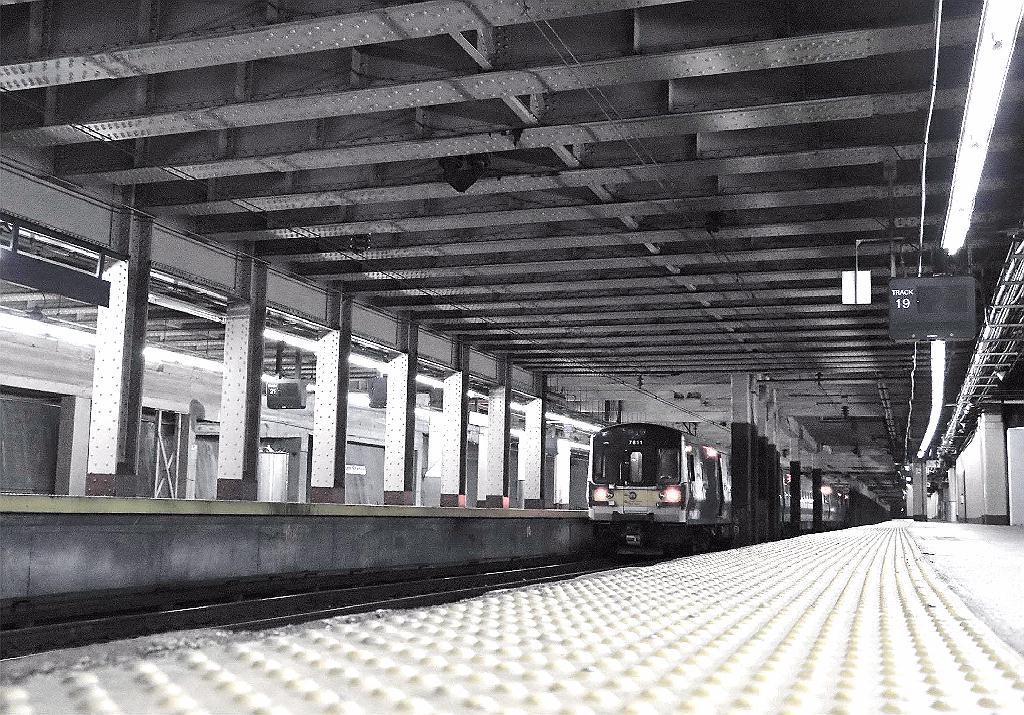
The MTA could be rapidly approaching a “fiscal cliff,” according to a new report by the group Reinvent Albany.
As of October 2022, Metropolitan Transportation Authority monthly transit ridership remains at about 65 percent of 2019 levels. The MTA is receiving nearly $16 billion in total federal emergency aid related to COVID, but that is likely to be exhausted by 2026. Increased staffing, fuel and debt service costs are expected to further deplete the MTA’s operating budget once federal funds run out, according to the report.
According to Reinvent Albany, “… the decline in fare revenue, combined with an end to federal COVID operating aid and historically high debt levels, will destroy the MTA and transit service unless the state delivers the MTA billions in new dedicated operating funds.”
The situation is made worse by ridership numbers that have yet to rebound to pre-pandemic levels. The MTA has collected $1.6 billion less in 2022 than 2019 through September in passenger and toll revenues
MTA CEO and Chairman Janno Lieber recently attended the Somos Conference in Puerto Rico, where he called for legislators to find new sources of revenue for the MTA — the first trip of its kind in recent memory.
“We are glad the MTA is raising the alarm. This really is a looming disaster for transit riders and we urge the MTA to use open, consistent budget data to help strengthen their case for state aid to the public and the Legislature,” said Reinvent Albany’s Rachael Fauss, the report’s author.
The MTA’s consultant — McKinsey & Co. — updated its economic forecast for the agency’s July 2022 Financial Plan Presentation to account for the lower-than-expected ridership. McKinsey’s updated prediction is for ridership to recover to 74 percent of 2019 levels in 2024, down from their February prediction of 86 percent.
With no changes in dedicated revenue from the state, the drop in projected ridership will force the MTA to rely more heavily on remaining federal aid. As a result, the fiscal cliff is now expected to arrive in 2024 instead of 2025, which was McKinsey’s estimate from February.
Reinvent Albany is making several recommendations as to how the state can best reach a resolution. The group says the MTA should be open about its financial struggles, which will bolster the case for state funding. It also argues against the gas tax holiday currently being pushed by some state lawmakers and considered by Gov. Kathy Hochul, which would take away from the pool of potential funding for mass transit, and instead, incentivize driving.
The full list of Reinvent Albany’s recommendations are:
- The MTA should continue implementing the MTA Open Data Law, prioritizing publishing open data from the operating budget and capital plans.
- The MTA Board should publicly discuss debt affordability statements at their meetings to help emphasize to the riding public how MTA’s historically high debt payments are endangering transit service.
- The MTA should only use recurring revenues in its debt affordability metrics. Federal emergency aid should not be counted when measuring debt affordability.
- The MTA should report revenue and spending trends over a longer period of time, not just changes from prior financial plans or capital amendments; end the practice of “re-baselining.”
- Ridership projections should be updated and publicly released with each financial plan update, not on an ad hoc basis.
- Existing state transit dedicated funds should be remitted directly to the MTA and other transit systems to protect operating funding from raids by the governor. This will strengthen MTA bond ratings and over time reduce MTA’s borrowing costs.
- New state dedicated operating funds should also be remitted directly to the MTA, and all MTA contracts and bond issuances should be subject to State Comptroller oversight regardless of how funding is delivered to the MTA.
- The Legislature should use the Outer Borough Transit Fund to improve bus, subway, and commuter rail service, rather than provide toll discounts.
- The governor and Legislature should reject any attempts to continue the gas tax holiday, which disproportionately benefited high-income individuals and oil companies.









